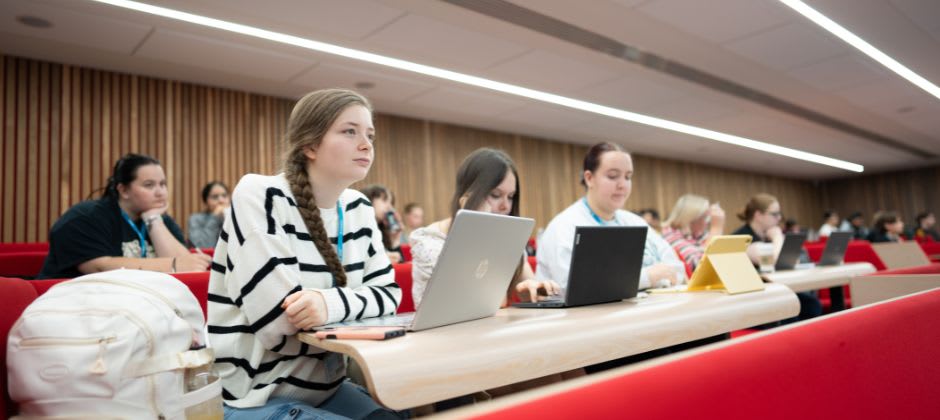Course description

Psychology and Childhood Studies will enable you to apply psychological knowledge and understanding to work with children and young people.
On this programme you’ll learn how to reach valid conclusions based on scientific underpinnings. You’ll study the practicalities of working with children, adolescents and young people in research and social contexts with emphasis placed on current social and educational policies within child care and safeguarding. You’ll explore how society views childhood, how children develop, and the challenges facing children and young people today – as well as reviewing the impact of relevant legislation.
GBC
This programme is accredited by the British Psychological Society (BPS), such that students gaining at least a Lower Second Class Honours Degree are eligible for Graduate Basis for Chartered Membership (GBC) with the BPS, which means you will have taken your first step towards becoming a professional psychologist.
Want to do something more counselling-based? Or with Forensics, Children or Criminology? Take a look at our other Psychology courses.
Training Course Content
During the first year of study students will learn about Psychology as an academic and applied discipline. Students will explore what is meant by ‘science’ and in particular, what is meant by evidence, and learn about the principles of research design. In addition, students will be introduced to some of the key thinkers and the big ideas that have shaped the way children, young people and families have been characterised. The key to the first year of study (level 4) study in this programme is the development of sound academic skills, research literacy, and a broad knowledge and understanding of the core domains in psychology, including how they may offer competing perspectives, and to the underlying principles and theoretical approaches of childhood studies.
In the second year of study (level 5), students will gain a deeper understanding of research methods and develop the skills and knowledge to prepare them to engage ethically and effectively in their own research or work-based projects. Another central feature of the second year is the development of in-depth knowledge and understanding of the core domains within psychology. These form the focus of four of the modules undertaken by students at this level, covering: cognition, biological, social, individual differences, development and research methods. In addition, students will critically analyse different theories and approaches to participation that practitioners exercise when making decisions that affect children, young people and families. Students also undertake their work placement during this academic year.
In the final year (level 6) of study students undertake an empirical dissertation in Psychology and Childhood Studies in addition to exploring the historical and contemporary concerns that have served to shape policy and practice around children. An important feature of the third year is the availability of optional modules focusing on areas of applied psychology and modules relating to childhood studies. Optional modules offered provide students with the opportunity to explore practical challenges of working with families where there are concerns around violence, harm and/or abuse in addition to developing anti-oppressive practice.
Course delivery details
- This degree is accredited by the British Psychological Society (BPS).
- Childhood focused modules are included in each year of study.
- Optional modules in the third year to tailor own learning experience.
- Combination of two subject areas (Psychology and Working with Children, Young People and Families) which will enhance student learning experience.
Request info
Birmingham Newman University
Founded in 1968, Birmingham Newman University is a community-focused institution based in Bartley Green, Birmingham. It has built strong partnerships with many local businesses, charities and schools, making it an ideal choice for students wishing to gain practical experience during...

